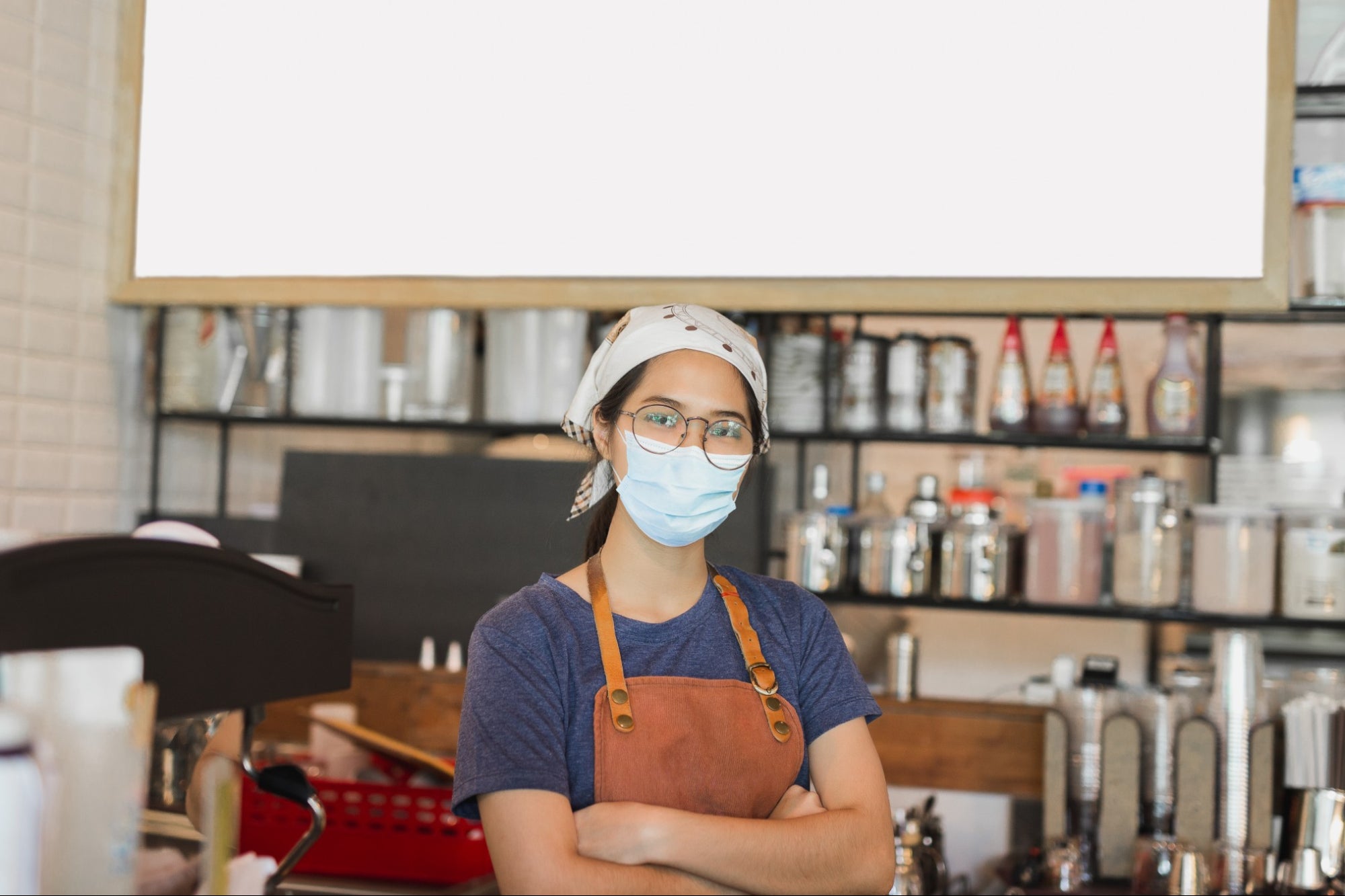
6 min read
This story originally appeared on Alto Nivel
The impact of the pandemic on businesses, especially bars and restaurants, in Mexico looks huge. The worst thing is that no one can guarantee how long it will take to recover from the hangover of the pandemic. According to the National Chamber of the Restaurant and Seasoned Food Industry (CANIRAC), the crisis will cause the closure of more than 100,000 establishments in the country.
But Marcos Di Battista, mixologist and partner at Comedor de los Milagros, Comedor Lucerna and Handshake Bar, knows that Mexico is a resilient country full of opportunities, even in the midst of a crisis. Originally from Argentina, Marcos says there are important reasons that let him know that the restaurant and bar industry will return to economic activity sooner rather than later and his prediction looks encouraging.
“When I arrived in 2009, during the H1N1 pandemic, I understood what I was betting on. Mexico is a more stable country, economically speaking. Mexico has a lot of strength and a great drive that serves to get out of problems. I don’t know if in Argentina I could deal with such a strong problem that Mexico has as drug trafficking. Every day, Mexicans get up in the morning to work and give a cold chest to problems, “says the businessman.
Setting up a restaurant in Mexico is not easy, much less maintaining it. According to data from the Mexican Restaurant Association (AMR), four out of 10 businesses of independent entrepreneurs will not pass after the first three years of their foundation and only two out of 10 will manage to survive after five years. However, opportunities arise and resilience must be very important to entrepreneurs looking to make a restaurant a successful business.
For clubs and bars, changing their format to a restaurant has been a great challenge. It costs up to half a million pesos to adapt from bar to restaurants , according to the Mexican Association of Bars, Discotheques and Nightclubs (Ambadic). In fact, a few weeks ago, some businessmen announced the creation of the National Front of the Night Entertainment Industry to protect the 800 thousand jobs and that the head of government of Mexico City, Claudia Sheinbaum, assured that such opening is possible in a way gradual and well monitored by epidemiologists.
“We had a staff of almost 200 employees and we were able to pay until it reached us. We had debts that we prefer to have so as not to cut jobs or close the restaurants and the bar. At least, in the event that something happened to them, they could keep their registration with the IMSS and be treated ”, says Di Battista. “It was very hard but we are confident that everything will improve. The ‘home delivery’ system helped us in one of the restaurants to pay nonymous, even if we did not pay for services. Some suppliers financed us to help employees, until their resources allowed it ”.
As of July 1, the restaurants were allowed to reopen with certain restrictions. The capacity is up to a maximum of 30% among other restrictions that the government authorities dictated, but over the weeks, many restaurants did not reach that percentage. For Marcos Di Battista, that decision was a relief. Even with those measures, the opportunity to return to work in the midst of a crisis seemed comforting. Now the challenge would be to find new tactics to have diners and adapt to the New Normal but with the pride of knowing that they did not close permanently.
“It was an extreme feeling that we managed to get out of. We had debts and payroll to pay, but the important thing is that we went back to work. In fact, we got to the point of paying 75% of the workers’ salary and still, they were very grateful for keeping the job. Today we already regularize up to 90% of the salary of what they earned before the pandemic. We as partners also had to be supported. The government helped us with a contribution of 70 thousand pesos to pay the rent for the restaurants which, in a certain part, is excessive with the three million that we lost by closing, but it was like water in the desert and we were very grateful for the gesture ”.
More and more, Mexicans have come out of confinement more and have resumed their activities with certain measures. Restaurants have also adapted better to the New Normal and have found new strategies that will bring customers closer to filling their allowed capacity.
On the one hand, the coronavirus has not ceased and some experts expect a rebound or next wave of infections in winter that may lead businesses to lower the curtains again, but the impact will no longer be the same because Mexicans already know what is dealing with the health crisis. The learnings lead entrepreneurs to make better decisions and prevent any other similar case, but the most important thing is to know that like any hangover, time will help to alleviate it.
“If the pandemic had been like the worst hangover of my life , the relief would be to be grateful that at least I am alive and that my family is fine , but that possibly the one next door, was much worse and I have to be empathetic with that person ”, reflects the Argentine mixologist and businessman.
https://www.entrepreneur.com/article/357854

